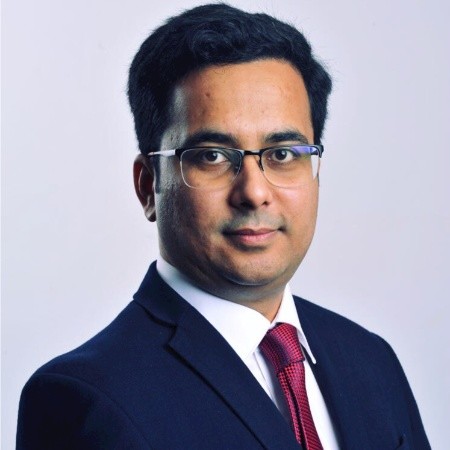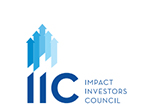|
Capital Provider Showcase
Dialogue with Uday Garg, Aditya Mody and
Gaurav Kumar, Mandala Capital
|
|
1 Could you walk us through the investment thesis that Mandala Capital has developed for the Indian market? Our readers will greatly benefit from understanding the ‘Mandala Playbook’ better when it comes to identifying Agritech companies for investments.
|
Our strategy has evolved from being a minority investor to being more control and operationally oriented.
On the financial side- we look for intrinsically positive cash flow businesses that we can take over to drive growth and margin improvement and create large, sustainable businesses.
On the impact side – we are increasingly focussed on climate adaptation and food security as a theme. Though we naturally touch areas like rural employment, gender inclusivity, water management, waste upcycling, food affordability and so on given our sector focus.
The playbook has four components – Thesis development, Deal Creation, Deal Structuring, Value Creation.
Agribusiness - as we define it - is a very large sector and overlaps with several different sectors from industrials, logistics, manufacturing, consumer and so on. During the Thesis development stage we use our collective experience and our proprietary ranking system to evaluate various sub-sectors and choose the best ones for the current Fund. Deal Creation is a process where we spend up to 2 years tracking and developing relationships with companies to find a meeting of minds. Deal Structuring involves finding win-win solutions between all stakeholders. And Value Creation is the most important part for us where we drive performance improvements and eventually exits.
|
2
Mandala Impact looks at the entire food value chain right from agri-inputs to farm-to-fork solutions. Which part of the value chain, have you experienced to have presented the maximum potential for business scale as well as farmer-level impact? Could you share a few examples from your investment portfolio that demonstrate having achieved this balance?
|
It becomes difficult to scale something if the buyers or suppliers are not scaled up as well. This is one of the issues within the agri chain in India. One way to address this is to be in the entire value chain from Farm to fork – thus creating the necessary infra and scale yourself – this is happening with some of the VC backed agribusinesses in the market but has its challenges and requires very deep pockets and time horizons. The other could be to identify specific areas where scale can actually achieve maximum impact and returns and solve a bottleneck.
Two examples would be Jain Farm Fresh and Keventer Agro – both within the food processing or midstream part of the value chain.
In Jain Farm Fresh’s case – we funded and built one of India’s largest fruit and vegetable processing units – which is able to service the volume requirements and quality standards of International MNCs. The key differentiator was the ability to buy from hundreds of thousands of small holder farmers on a consistent basis on remunerative pricing terms, while simultaneously building farmer relationships through agri inputs and technical know-how to enhance productivity and yields.
In Keventer Agro’s case – we funded and built the largest and first UHT milk plant in East India. We also had to invest in the back-end to to ensure quality and consistent supply. This included working with small holder dairy farmers, funding collection centers and cooling tanks and building relationships with the various milk traders in the region
In both these cases we were able to deploy $20-30 million each in building scaled infrastructure that could generate good financial returns. (We exited Keventer last year with strong returns to fund investors). At the same time we were able to create huge benefits for small holder farmers by providing them consistent offtake at fair prices while also delivering high quality products for consumers at affordable prices.
|
3 One part of the food value chain that we observe coming up with innovative solutions is the alternative protein (plant based protein, dairy alternatives, microorganisms derived protein, lab-grown meat)
segment. Our understanding is that the consumer and industrial demand for such products is still at an evolving stage in India. What has been your assessment of this space in India? Do you see a pipeline of investable opportunities emerge?
|
While there are several interesting opportunities and concepts in this space, most companies are at a relatively nascent stage with several challenges around long-term economic viability, supply as well as demand constraints and investment gestation periods. Therefore, there are currently very few suitable candidates for our Funds and our mandate.
Nonetheless, these areas are where the future of food is likely to be and our team actively tracks and monitors companies in these sectors globally. We also have made a few investments from our Mandala Innovation platform into these areas but we are extremely selective.
|
4 In the last 5 years, we observe an increasing number of agritech startups coming up with ‘climate-resilient’ agricultural solutions. Climate-resilient seeds, weather and soil monitoring advisory and cold chain are
some of the solutions that have garnered investor interest. Do you see a business case for such solutions to scale up and especially meet the requirements of the small and marginal farmers in India? From your experience, how ready and equipped are small-sized farmers to adopt such technologies at scale?
|
The solutions in cold chain and climate resilient seeds specifically are not that new – they always had a climate angle. These remain attractive sectors for investors in terms of scale and financial return and also offer great benefits to farmers and suppliers. Overall small holder farmers are not averse to adopting new technology – just look at how quickly BT Cotton was adopted across the country. The issue is more about what impact it has on their bottom line and whether it makes a step change for them.
We observe that as long as solutions are available to farmers at an affordable price point and also bring with them tangible benefits, farmers will be open to using them. Farmgate solutions including those that offer storage and warehousing for agri produce and especially ones that have a strong climate lens (for example: solar powered cold storage) have been seeing good traction with farmers.
|
5 Mandala Impact has a presence in Indian and international markets. How different is the Indian market, as compared to the rest of Southeast Asia, from an investment
perspective? From your experience across these geographies, what could be some of the best practices that both investors and investees, could learn and adapt to the Indian context?
|
This is a broad question but overall the Indian investment ecosystem is quite well developed compared to the rest of our markets – which is southeast asia. We are seeing companies in Vietnam and Indonesia for example that are doing what some of our portfolio companies in India were doing 10 years back. This is I think also a similar story in the agritech space. So I feel India is leading the charge on the agribusiness side within the South and South East Region -where we are focused.
|
6 Mandala’s Impact Report lays out a very comprehensive framework towards impact measurement and alignment of impact with the SDGs.
How can emerging agritech enterprises in India better prepare themselves to measure the impact of their solutions, in line with the expectations of investors?
|
There has to be alignment of goals along with coordination and support between shareholders and management to make impact creation, measurement and monitoring effective across the organisation. This is possible through quantitative metrics, benchmarks and KPIs to set targets, measure and report. And it allows everyone to evaluate performance and provide constructive feedback.
|
7 Lastly, given your past investments and learning in the agriculture sector, what are the key risks for potential investors in this space - and how should one mitigate them?
|
This would really depend on the sub-sector as they can have varied risks. As a whole, the agri sector is subject to higher uncertainty than most other sectors due to highly volatile input and output prices, unseasonal, delayed or inadequate rains and other such climatic changes, resultant crop pattern changes, regulatory policy changes such as import or export bans, and so on. These are perhaps some of the biggest risks that should go into any underwriting decision for the agri sector. Mitigants could be in the form of building a pipeline of higher value products, promoting drought resistant crop varieties, investments in AI and machine learning, etc
|
|
|
Uday Garg, Managing Partner, Mandala Capital
Uday Garg founded Mandala Capital in 2008 and since then has been involved in all areas of the business. He was instrumental in developing its strategy and vision as well as raising the current funds under management. The inspiration behind food and agriculture as sector focus stems from the influence of Mr. Garg’s late grandfather, Mr. B. R. Barwale, who founded Mahyco, India’s leading seed company, in 1964.
Prior to Mandala Capital, Mr. Garg worked at Altima Partners (London) focusing on private investments in global Emerging Markets across sectors (including Agribusiness). He holds a B.S. in Economics from the Wharton School of the University of Pennsylvania, with a concentration in Finance.

Aditya Mody, Managing Director, Mandala Capital
Aditya Mody joined Mandala Capital in 2013 from Axis Capital’s Investment Banking Coverage team (Mumbai) where he was a part of the Financial Sponsors Group.His previous roles with the Axis Group include Telecom, Media and Technology focused on equity research, as well as setting up the retail broking arm Axis Direct. From 2004 to 2008, he was a part of JP Morgan’s Investment Banking Coverage team (Mumbai, London and Hong Kong).
Mr. Mody holds an MBA in Finance and IT from Narsee Monjee Institute of Management Studies, Mumbai University, and a BCom in Accounting and Computer Sciences from Jai Hind College, Mumbai University.

Gaurav Kumar, Director, Mandala Capital
Gaurav Kumar joined Mandala Capital in 2016 from IDBI Capital Market Services, where he was a part of the Investment Banking division as a Manager, focused on M&A and private equity transactions across the Pharmaceuticals and Financial Services sectors, working on both, deal original and execution and providing support to the Structured Finance division.
Mr. Kumar completed an MBA from NMIMS (Mumbai) as well as a BTech in Mechanical Engineering from the Indian Institute of Technology (Banaras Hindu University).
About Mandala Capital
Founded in 2008, Mandala Capital is a private equity firm focused on long term and sustainable investments across the food value chain in India and South East Asia. It partners with visionary promoters and management by providing complete financial and operational support to enhance their operational value and help companies achieve sustained leadership in their sectors.
In 2014, Mandala launched its first institutionally backed fund with investors from the USA and Europe. The early success of Fund I led to the launch of Fund II soon after in 2016. In early 2022, it launched Mandala Innovation to focus on Agritech.
Mandala’s current portfolio includes companies across the spectrum of food-related investing, including seeds, biotechnology, sugar, biochemicals, irrigation, food processing, solar, agri-financing, logistics and cold chain, dairy, beverages, and fresh produce.
|
|
About Impact Investors Council:
Impact Investors Council, India (IIC) is a member-based national industry body formed with an
objective to build and strengthen the impact investing eco-system in India. To know more about our work visit https://iiic.in or reach out to secretariat@iiic.in
|
Disclaimer: Data and Information in this newsletter is made available in good faith with the exclusive intention of helping market and ecosystem players, policymakers and the public build a greater
understanding of the Indian impact investing market. The data is collated from sources believed to be reliable and accurate at the time of publication. Readers are urged to exercise independent judgment and diligence in the
usage of this information for any investment decisions
Some of the information provided in this newsletter is supplied by third parties. It is important that all users understand that third party information is not an endorsement of any nature and has been put together with the
sole purpose of benefiting stakeholders.
|
| Unsubscribe |
|
|
|



